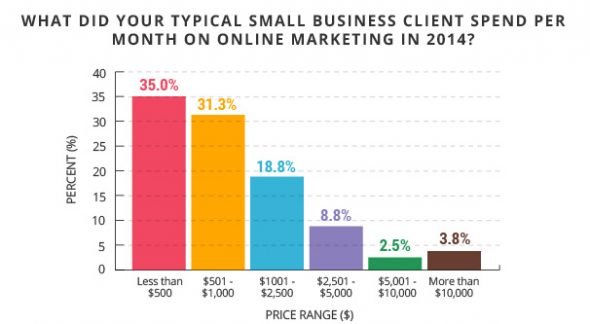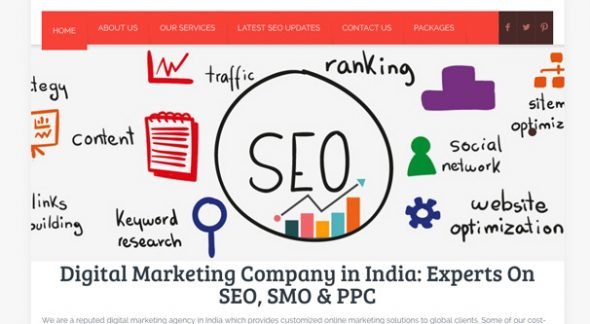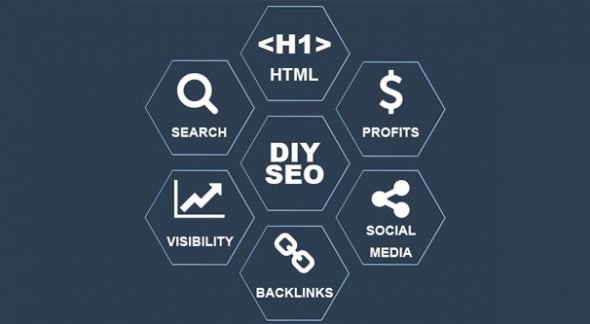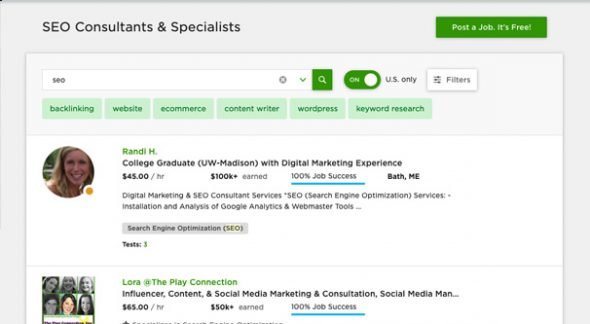SEO budgeting is tricky. On one hand, plenty of websites do their SEO completely organically, with internal learning, free tools, and plenty of research. Other companies spend thousands every month. Among small businesses, that latter number is pretty small, but it does exist.
How much should you be spending on SEO? It’s not an easy question to answer, but I’ll do my best regardless.
The Simple Answer
The simplest answer is “as much as you can.” You know your total operating budget. You know how much it costs to run your business for a month, with a buffer for unexpected expenses. You know how much you’re willing to spend on, say, paid advertising. You know how much you need left over for company profits. How much money is left once you subtract everything that you consider more critical than SEO? That’s your SEO budget.
Every business is different, every niche is different, and every scenario is different. You might be able to get away with under 50 bucks a month for SEO, or you might struggle to compete if you’re not spending $300 per month. It depends on your competition as much as anything else.
That survey linked up above shows some interesting numbers. For small businesses – the only ones I’m really talking about, since that’s most of you out there – over 70% of them spend under $100 per month on SEO. Another 17% spend just over $100 per month, so nearly 90% of small businesses spend under $200 per month.
More shocking is that 54% of small businesses polled don’t spend anything on SEO. Now, there are two reasons for this.
- Some companies disregard the value of SEO entirely and don’t consider it worth their attention.
- Some companies prefer to learn SEO techniques and apply them to various areas of their business they don’t consider SEO.
For example, some businesses might learn the basics of keyword analysis, of meta data optimization, and apply it all to content marketing. They consider that part of content marketing, not part of SEO. Keyword research is rolled into topic generation, site structure/speed/user experience is rolled into site design, and none of it is labeled SEO in the budgetary spreadsheets.
Some people also simply don’t think of employees as costs. If you have an employee who handles your SEO, how much are you paying them? Is that part of your budget, or do you only consider your budget to include what you spend on tools and services? There’s a lot of variation here.
Of course, the simple answer is never the real answer. SEO has a lot of variation and a lot of traps for users who don’t know any better.
Why Cheap SEO is a Trap
Cheap SEO is often either useless or actively harmful for a business. You know how, as a business owner, you’re inundated with emails with all kinds of offers? I’ve seen everything from “cheap SEO only $99 per month” to phone calls promising to get me to the #1 page on 150 different search engines. There’s so much garbage out there that, if you don’t know what you’re looking for, you might just end up paying for it.
The first major trap is that there are a lot of people out there offering SEO services who are deliberately scamming businesses that don’t know any better. These SEO businesses offer “guaranteed” results, and they use techniques that Google considers forbidden. Link schemes, private blog networks, keyword spam, paid link exchanges, and other sorts of scams fall under this heading.
The second trap is that there are a lot of people offering SEO services who frankly just have no idea what they’re doing. They figure they can Google a few topics to find some strategies, use some free tools to emulate the pros, and can swing it as a consultant. Maybe they’re good at web design and set up a slick, professional-looking site. Maybe they’re just buying a package from some seller on BlackHatWorld that helps them set up a site to look good. Who knows!
In either case, hiring these kinds of people is probably going to be detrimental to your site. Whether they don’t know any better or are deliberately scamming you, when they implement black hat techniques, sooner or later your site is going to pay for it. If you end up with a Google search penalty, your site will all but disappear from the web, and that can be devastating if you rely on online sales.
Modern SEO
The banner of SEO is a pretty broad umbrella. In the past, it mostly just referred to the mechanical aspects of search engine visibility. It was your keyword usage, it was your meta data, it was your site structure. These days, though, there’s a bit more to it.
One of the largest driving factors of search engine ranking today is content. Everything revolves around your content. Your keyword choice is only part of the equation; you also need to produce a sufficient volume of content, a steady stream of fresh content, and enough evergreen content to consistently show up in search results. You need to pick the right topics, write good content, and make sure it’s easy to view on your site.
Is content marketing part of SEO? These days, I would argue that it is. Content marketing is an essential part of visibility on the web; without sufficient content, there’s nothing on your site to optimize.
Therefore, as far as I’m concerned, content marketing and all it involves should be part of your SEO budget. I’ll break that down momentarily.
Choosing Scale
You have one major choice to make when deciding how much of a budget you want to spend, and that’s scale. The way I see it, there are three tiers a small business will consider for SEO.
The first tier is the do-it-yourself tier. This is the cheapest tier in terms of money, but it’s the most expensive in terms of time. You have to learn the basics – and advanced techniques – of SEO yourself. You need to pick up an array of tools, some of which are free and some of which are paid, and you need to learn how to use them appropriately. You internalize the process of SEO within your team, whoever is in control of various aspects of website management, site design, and content production. It can be a lot of work, a lot of time investment, and a lot of organizational work.
The second tier is the consultant tier. This is where you hire a freelancer – one who knows what they’re doing – to do the work for you. This is a lot simpler than the DIY method, because the consultant comes with their own knowledge and training. You have to pay them, generally enough to cover their time plus the cost of the tools they use for you. This can be cheaper than the third tier, but it also helps save you some time and effort. They might also only handle some of your SEO, so you might, for example, still need to produce blog posts for them to use.
The third tier is the agency tier. This is similar to hiring a freelancer, except on a larger scale. You work with a business that handles SEO for dozens of clients, which means they likely have better and more expensive tools to bring to bear. It’s usually the most expensive option, but it’s also usually the most hands-off option. They’ll cover everything from content creation to site design, as necessary.
You need to balance your budget in terms of both money and time to determine which option is best for you. No option is going to be better than another by default. It all comes down to what they can do for you.
Expected Prices
Depending on scale, there are a lot of different possible price ranges you may expect to pay. From the top down, let’s look at agencies and scale back.
With agency-level service, pricing can vary a lot. Agencies have tiered service levels, and can scale up to the thousands per month level for huge businesses. Some agencies charge hourly for their time. Some charge a flat fee per month. Some charge based on performance, though these aren’t always available. Some even just charge per project.
For project-based SEOs, I don’t recommend it outside of one specific scenario. That scenario is “our site sucks and we’re not ranking, we need help fixing things to a baseline.” This is a single project where someone can swoop in and do a technical SEO audit, a backlink audit, and a penalty audit. They can identify the problems with your site and current SEO, and fix them.
However, SEO is an ongoing project. You’re never “done” with SEO. If nothing else, the search engines are always changing their standards and factors, so you need to adapt with the times. A project-based SEO hire works to get you up to speed, but then you need monthly SEO to keep you going.
At the agency level, pricing can vary wildly. I’ve seen agencies charge $200 per month for basic SEO, and I’ve seen others charge $3,000 per month. If they charge hourly rates, I’ve see anything from $50 an hour to $200 an hour, with an expected minimum of 10 hours per week, if not more.
At the consultant level, prices tend to be a little cheaper, but not always. Hourly rates range from $20 an hour up to $200 an hour, and this might not always include everything. Remember that you may need to end up hiring a writer to produce content for your SEO guy to optimize.
Additionally, there are some consultants that are better than agencies. These high level consultants might charge even more than agencies, and while they’ll give you better results with a personal relationship, it may be outside your price range.
For the DIY-level SEO, things get complicated. There are a lot of different prices you need to factor in.
- A comprehensive SEO audit can cost anywhere from $150 to $2,000, depending on the size of your site and the depth of the audit. Free tools that do different elements of audits exist, but you don’t get everything in one place.
- Keyword research can be free on a limited basis, but powerful tools can cost $150 or more per month.
- Technical SEO tools are often free plugins, but you may want to pay for advanced versions of those plugins for $20 or more per month.
- Analytics is free with Google Analytics, but other competing analytics platforms might charge for their services. Advanced analytics like heatmaps are an additional cost.
- Content creation can cost you anywhere from $20 per blog post for bottom of the barrel content mill crap to $500 per blog post for an extremely high quality writer. Multiply this by 1-5 blog posts per week depending on how much content you want to produce.
- Monitoring tools can run you $50 or more per month depending on what you want to monitor, from site uptime to social listening.
There’s a lot out there, and piecing together your own SEO strategy and stable of tools can take a lot of time. Remember to value your time as well!
So, the long answer is “a good budget for SEO can range anywhere from $0 per month with a lot of time invested, to $1,000 per month for decent service for small businesses.” You can certainly end up paying more, even far more for older, larger sites, but the majority of people investing in basic SEO fall in the $100-$300 per month range. What about you?
 ContentPowered.com
ContentPowered.com










